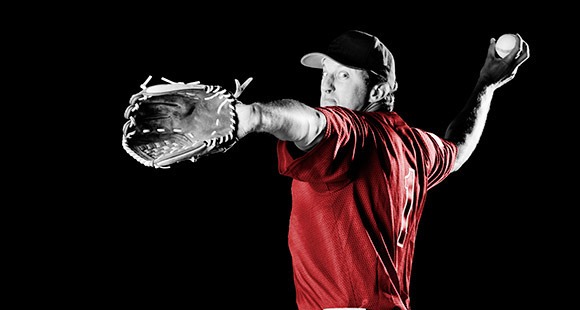Myths and Truths about Expertise and Expert Performance
By Dr. Russell H. Lord Montana State University-Billings
Should anyone who accepts Aristotle’s claim that “from the hour of their birth, some men are marked out for subjection, others for rule” or believes that elite athletic achievement depends on “choosing good parents” be allowed to influence young athletes? The answer supported by research is “no.”
Expert performance, whether the skill is football, soccer, music, or surgery begins with initial, exploratory, unskilled performances. Then progress can lead to competent (acceptable) performance, to superior skill and expert performance, then, finally elite (virtuoso) performance. At each step, progress ends for many participants as fewer and fewer persist. Popular explanations for why one person plateaus at a given level while another continues to excel rely too often on myths of genetic control or not working hard enough.
Of course genetics plays a role ‐ it just does not play the definitive role so many people believe it plays. Eye color depends on 15-20 genes interacting with one another and 180 different genes influence your height. However, those genes still explain only 10-15% of a person’s adult height. The other 85-90% of the variation in our height depends on other, unknown factors. Our human genome is very small ‐ about 20,000 protein-coding genes. Wheat has a genome five times as large. Could such a small genome “stamp in” abilities as complex as playing sport at a professional level, music in Carnegie Hall, or performing hip replacement surgery? The short answer is “no.” Instead, our human genome codes for flexibility in expression, plasticity in organization, and variation largely determined by interaction with internal and external environments. There is no other way for such a small genome to create such an unpredictably complex organism.
But, 45 current MLB players had a father who also played MLB? First, that is just 6% of MLB players ‐ leaving 94% without the “right” genes. Second, powerful cognitive biases distort our perception. Media coverage focuses on anomalies like Bobby Bonds-Barry Bonds or Ken Griffey Sr.-Junior Griffey. This makes such events more vivid and available to our memory. This is why airplane crashes, which are rare, seem far more threatening than car crashes, which are quite common.
Genetics may establish a ceiling above which a person cannot progress, but, there is no linear path from genes to expert ability.
Twenty-five years of research have established 10,000 hours of deliberate practice as the common factor in expertise. Uniformly, elite performers have accumulated at least 10,000 hours of deliberate practice ‐ they do not commonly have parents who were similarly skilled. They show graduated improvement with extended engagement in the task. Research has uncovered no evidence of sudden, abrupt improvement. Improvement continues beyond physical maturation rather than diminishing. They display a sophisticated mental representation of their task and benefit from the acquired knowledge, insight, and training methods that can be passed on to novices. Thus they can match or exceed the virtuosity of previous elites. Their performance differs qualitatively, not just quantitatively from their competent peers. A peer might make some of the same catches or play the same musical composition, but the elite performer does so more fluently, with more ease, with an élan and elegance missing in the performance of others.
They have not just repeated a skill for 10,000 hours; instead, they have focused intense concentration on elements of their skill they currently do not perform well. Thus “fun” is not an aspect of their practice. They practice daily, straining their physiological and cognitive systems so that practice cannot be sustained beyond a couple hours. This deliberate practice creates neural circuitry required by the task demands, illustrating Hebb’s Law. Known since the 1940s, this states that neurons that fire together wire together. As a result of the training, motor pathways innervated by the groups of neurons demanded by the task operate more quickly (faster signals), more easily (needing less stimulation), more predictably (creating more correct anticipation), and more repeatedly (more stable muscle action). Without conscious, cognitive control the performer considers alternative responses and separates correct from incorrect responses very quickly. The neuro-motor patterns on which the performance relies are ingrained through such deliberate practice.

Practice alone cannot lead an individual to exceed his/her hypothetical, genetic ceiling. However, no evidence supports a conclusion that genetics can create elite performers. This combines with undeniable evidence that, lacking about 10,000 hours of deliberate practice, no one, genetically advantaged or not, becomes elite. The lesson seems straightforward: anyone seeking to enhance an athlete’s training needs to create deliberate practice.
Deliberate practice must
- Focus on elements of the skill the athlete currently can not master, not on what can already be done,
- Replace simple, rote repetition with tasks that require thorough and efficient use of available information specific to the task (e.g. visual cues, body position, etc.)
- Require more complete and accurate detection, recognition, and reaction to patterns that emerge during the task, and
- Establish more rapid but correct decision-making with respect to the specific task.
Thus, a young golfer does not simply hit 1,000 practice shots a day but uses nuances about turf, wind, balance, swing tempo, uphill/downhill angles, etc. on each practice swing.
One popular book on this subject, Geoff Colvin’s Talent is Overrated, merits attention because he makes few errors; unlike numerous errors in work such as Malcolm Gladwell’s Outliers.
I think that old-fashioned grit ‐ the combination of passion and toughness that generates perseverance in the face of drudgery and toil without immediate reward or pleasure will eventually be found to be essential for virtuoso performance. Tomorrow’s highly skilled athlete, musician, or surgeon might expect a high, future salary, but it’s hard to imagine that expectation sustaining deliberate practice for 10-12 years before the salary starts.







